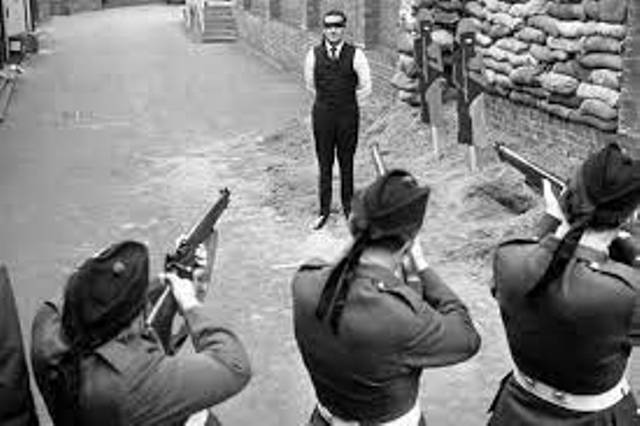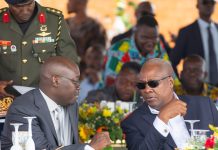The Parliament of Ghana has passed two critical bills to repeal the long-anticipated death penalty and also made witchcraft accusations criminal.
The law that abolishes the death penalty for life sentences was passed on Tuesday, July 25, 2023, and the other proscribing the law against witchcraft accusations passed on Thursday, July 27, 2023.
Both laws, the Criminal and Other Offences (Amendment) Act 1960 (Act 29) and the Armed Forces (Amendment) Act 1962 (Act 105), as well as the Criminal Offences (Amendment) Bill 2022, were privately sponsored by the members of parliament.
DEATH PENALTY
The imposition of the death penalty as punishment takes its root in the retributive theory of punishment, premised on the principle of an “eye for an eye and tooth for a tooth.”
Also known as capital punishment, the death penalty is the state-sanctioned execution of individuals convicted of specified offences such as attempts to commit murder, genocide, murder, treason, high treason, smuggling, and piracy.
The amended Act 29 and Act 105 together repeal the death penalty contained in the Criminal and Other Offences Act of 1960, and the Armed Forces Act of 1962. The bills were gazetted on Tuesday, June 28, 2022, and amend sections 46, 49, 49a, 180, 194, and 317a of Act 29 and sections 14, 15, 16, 17, 19, 20, 40, 78, and 79 of Act 105.

According to Section 304(3) of the Criminal and Other Offences (Procedure) Act, 1960 (Act 30), execution of the death penalty may either be by hanging or shooting by firing squad.
Upon assent by the President, every sentence in the various amended sections with the death penalty effectively changes to life imprisonment.
SUPPORT
All three human rights laws were private member’s bills initiated by the Madina legislator, Francis Xavier Sosu, with the backing of a group of Members of Parliament (MPs).
Other legislators, who threw their weight behind the Bill, were the National Democratic Congress (NDC) MP for Akatsi South, Bernard Ahiafor; NDC MP for Bolgatanga East, Dr. Dominic Ayine; NDC MP for Builsa South, James Agalga; New Patriotic Party (NPP) MP for Asante Akim North, Andy Appiah-Kubi; NDC MP for Talensi, Benson Baba Tongo; NDC MP for Krachi West, Helen Adwoa Ntoso; NDC MP for Bawku Central, Mahama Ayariga.
Those who opposed the motion were the NPP MP for Tolon, Habib Iddrisu; NDC MP for Zebilla East, Cletus Avoka; and the NPP MP for Hemang Lower Denkyira, Bright Wireko-Brobbey, who were not convinced by the argument that backed the bill.
The amendment passed has received huge acceptance from human rights advocacy groups across the world.
GENESIS OF AMENDMENT
The opportunity to abolish the death penalty in Ghana came out of the case of Dexter Johnson versus the Republic [2011] 1 SCGLR 601.
A majority Supreme Court decision shifted the responsibility to Parliament to consider a policy direction change on the subject.
Writing for the majority in the case of Dexter Johnson supra, Justice Jones Dotse (as he then was) opined that “the time has possibly come for the Parliament of Ghana to seriously consider whether to have a policy shift in the mandatory death penalty regime imposed on those convicted of murder.” {[2011] 1 SCGLR 601 at 702}.
It has taken more than a decade after the Supreme Court’s decision and spirited public advocacy to have the death penalty repealed.
At the last count, 176 people were currently on death row, including six women. They are likely to have their sentences converted to life imprisonment.
WITCHCRAFT LAW
On Thursday night, the House passed a law against witchcraft accusations and their attendant assaults.
Members of Parliament, prior to passing the bill, called for the abolishment of all witchcraft camps in the country following the passage of the law that proscribes the accusation of witchcraft. All members who participated in the debate to pass the bill called for the criminalization of all witchcraft activities and accusations.
The Criminal Offences (Amendment) Bill, 2022, widely referred to as the Witchcraft Accusation Bill, if assented to by President Akufo-Addo, is expected to address issues relating to witchcraft accusations and the torture linked to them.
The law, as passed by Parliament, will criminalise the act of falsely accusing individuals of being witches and subjecting them to associated punishments.
The bill at its third reading, which preceded its passage, received unanimous support from members, who argued that its passage would curb witchcraft accusations and abuses.
BILL
The Madina MP, the sponsor, on March 31, 2023, laid the Witchcraft Accusation Amendment Bill on behalf of other co-sponsors.
The members are Francis Sosu; MP for Pusiga, Hajia Laadi Ayii Ayamba; MP for Wa East, Dr. Godfred Seidu Jasaw; MP for Krachi, Helen Adjoa Ntoso; and MP for Afram Plains North, Betty Nana Efua Krosbi Mensah.
The introduction and laying of the bill followed the lynching of 90-year-old Akua Denteh in broad daylight at Kafaba in the East Gonja Municipality in the Savannah Region on the accusation of witchcraft on Thursday, July 23, 2020.
According to the report of Parliament’s Committee on Constitution, Legal, and Parliamentary Affairs, which considered the Witchcraft Accusation Bill, while witchcraft belief was widespread across Africa and other parts of the world, only Ghana had established “witch camps”.
It said the need for public policy interventions to deal with the social canker of witchcraft beliefs and its attendant human rights violations became more relevant considering the number of inmates in the various camps and the uninhabitable conditions under which the inmates lived.
“Information gathered by the committee indicates that in 2021, the number of inmates in the five prominent Witch Camps in Ghana, namely the Gnani Camp, Kukuo Camp, Gushegu Camp, Gambaga Camp, and Kpatinga Camp, totalled 539.
“Out of this number, the females constituted 498, representing 92 percent and the males were 41. The inmates were all vulnerable persons, consisting of older women, single mothers, widows, and unmarried women,” the report said.









